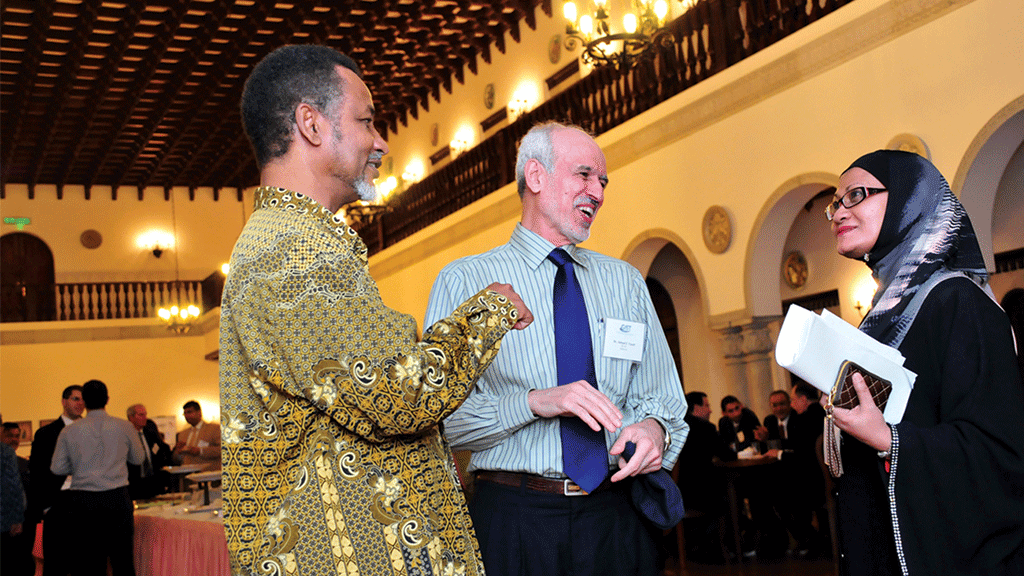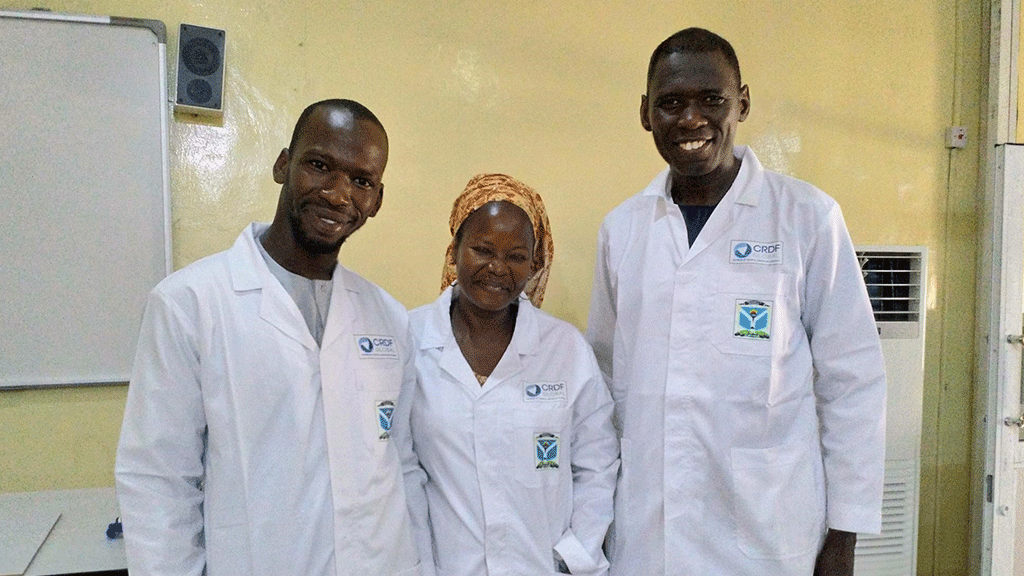Giving Scientists a Pat on the Back: 7 Science Prizes That AREN’T Nobels

Each year, the world’s attention turns towards the announcement of the winners of the prestigious Nobel prizes, but Nobels aren’t the only noble science prizes out there. In this edition of our blog, Ashley Truxon highlights 7 science prizes that are giving scientists a pat on the back.
At a recent staff gathering, we started a day of brainstorming and reflection by sharing something really awesome about a colleague’s work with varied responses. Some individuals described large, impactful achievements while others highlighted minor and routine tasks. I left thinking that the stories that I found most meaningful were the often neglected activities that kept us all intact and moving forward, even when no one was watching.
For some of us, receiving a compliment can make a huge difference. It offers a sense of purpose and confirmation about our daily decisions. This overwhelmingly positive response to being recognized made me wonder, “Who gives scientists a pat on the back?”
There are over 7 billion people on earth today. If you believe that everyone is a scientist to some degree, that’s over 7 billion people researching, discovering and innovating on a daily basis. To narrow this down a bit, a recent study found that there were over 15 million publishing scientists from 1996–2011. For that same time period, there were only 119 Nobel Laureates in physics, chemistry, and medicine. Chances are the vast majority of scientists won’t ever get that famous call from Stockholm.
Fortunately, my experience working with scientists around the world tells me that most of them aren’t in it for global recognition. The public usually only sees the scientists that have gained fame or wealth. But what about the scientists held up in basement labs, thanklessly poring over data? The scientists that always seem to miss the important things—weddings, birthdays, and milestones—collecting research in distant places? Or the ones that take on new projects without guaranteed funding or income? They do it simply because they love science. They do it to cure diseases, to heal our planet, and to strengthen economies. In sum, they do it in the hopes of somehow making life a little easier for us all.
And what do they get in return? Well, if they are lucky, another round of funding to start it all over again.
At CRDF Global, we operate under the belief that there are amazingly smart people all around the world. It is the lack of access to international collaborations that prevent many scientists and innovators from achieving their full potential. We work with scientists and innovators with little resources and even less recognition. We know that every discovery won’t win a Nobel Prize. But it’s the small wins — the small bits of encouragement through mentorship, grants, and fellowships that sometime have the biggest impact.With that being said, even the most humble, unassuming scientists could use some cheering on once in a while. And for that, here is a list of some of my favorite ways scientists are celebrated around the world, both big and small.
1. The Kavli PrizeEvery two years since 2008, the Kavli Foundation has recognizing scientists around the world in the fields of astrophysics, nanoscience, and neuroscience. Winners are awarded a scroll, medal, and $1 million dollars. No big deal.
2. The “Albert Einstein” World Award of ScienceDistributed by the World Cultural Council, the award was created to recognize scientific and technological research and development, with an emphasis on research benefiting mankind. Winners receive a diploma, a commemorative medal and $10,000.
3. L’Oréal-UNESCO Awards for Women in ScienceProving that they are more than just cosmetics, L’Oréal awards 5 women a year for their advancements in life and physical sciences. Each laureate receives $100,000. I especially like their commitment to diversity, honoring researchers in Africa, the Middle East, Asia, Europe, Latin America, and North America each year.
4. Maxwell Finland Award for Scientific AchievementSince 1988, the National Foundation for Infectious Diseases has given this award annually to scientists making outstanding contributions to the study of infectious diseases and public health.
5. Breakthrough PrizeThanks to billionaire Yuri Milner, Hollywood celebrated scientists in a big way in 2015. With Grammy award-winning singers, celebrity contributions, and over $20 million in prizes awarded in the fields of life sciences, fundamental physics, and mathematics, this televised award ceremony brought science prizes to the mainstream. Though fun and glitzy, there are some real drawbacks to big prizes. Still, who would turn down $3 million and an evening with Pharrell and Mark Zuckerberg?
6. World Food PrizeThough recipients aren’t always scientists, this amazing prize honors individuals around the world improving access to quality food. Hunger and malnutrition continue to be a major global challenge and this prize awards scientists, innovators, business leaders, and politicians working towards developing sustainable solutions. Awardees receive a hand-crafted sculpture and a cash prize.
7. George Brown AwardI have to mention our own annual awards that honors scientists – among others – for their work in advancing international cooperation in science and technology. We have been honored to recognize some incredible scientists – mostly recently Dr. Peter Agre, Bloomberg Distinguished Professor and Director, Johns Hopkins Malaria Research Institute.
Do you know a scientist or innovator that deserves a pat on the back? Send them my way! We love to tell the world about good science. To find out more about how CRDF Global honors scientists, check out information on our Annual Awards Gala!



